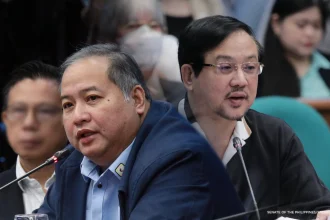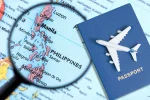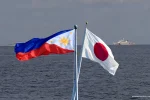
Metro Manila, Philippines – New Zealand has intensified efforts to attract Filipino students – particularly in fields encountering critical skill shortages – for direct employment prospects and potential pathways to long-term residency.
The initiative is led by Education New Zealand (ENZ), the government agency responsible for promoting international education. The disciplines under the “green list” of occupations include civil engineering, agriculture, and teaching.
Ben Burrows, ENZ acting general manager for international, noted the advantages of studying in New Zealand.
“For us, that’s a huge win-win – both for New Zealand and for international students, including those from the Philippines,” he said during a press briefing in Makati.
Filipino graduates from programs within the green list may be eligible for post-study work visas, which could serve as a stepping stone toward permanent residency.
Burrows said they have “a greater chance of obtaining the different visas that potentially could lead to permanent residency.”
ENZ data show that 90% of Filipino students in New Zealand opt to stay after graduation, with many pursuing long-term migration.
“The green list occupations would be open for all nationalities, so I can’t comment specifically on, you know, workers or students from the Philippines, but it’s open for all. But what I am aware of to date is the incredible contribution of Filipino workers to New Zealand’s economy and our society,” said New Zealand Ambassador Catherine McIntosh.
Strong student visa approval
Filipino student visa applicants present a unique profile compared to global trends, with a significant portion aged 30 and above, whereas the international average falls between 19 and 24 years old.
Despite this, approval rates for Filipino student visa applications remain robust at around 79%, with ENZ and Immigration New Zealand collaborating to improve acceptance rates further.
A recent survey conducted by ENZ revealed exceptionally positive feedback from Filipino students, with 91% rating their overall experience favorably. Key areas of satisfaction include education quality, orientation programs, and community integration.
Burrows noted New Zealand’s academic reputation, stating that all eight of its universities rank within the top 2% globally. He also emphasized the country’s work-life balance and safety, positioning it as an attractive destination for international students.
To further encourage Filipino students to study in New Zealand, ENZ and its partners are organizing education fairs in Manila, Bacolod, and Cebu. These events will provide direct guidance on program selection, visa applications, and available scholarships.
Manaaki scholarship program expanded
In a major development, New Zealand has significantly increased the number of Manaaki New Zealand Scholarships available to Filipino professionals. Last year, 16 slots were awarded, most of which went to scholars from the Mindanao region, a long-time priority for New Zealand’s development cooperation. This year, the number has nearly tripled to 44 scholarships, signaling New Zealand’s strengthened commitment to Southeast Asia under its revised foreign policy priorities.
“This is a significant increase in support of our foreign policy objectives in the region, and aligns with the comprehensive partnership between President Ferdinand Marcos Jr. and New Zealand Prime Minister Christopher Luxon, which was formalized in April 2024,” McIntosh said.
Scholarship recipients are selected through a highly competitive process, assessed on leadership potential, development impact, and academic merit. Special consideration is given to applicants from underrepresented geographic regions, especially areas with high populations of Indigenous and Muslim Filipinos.
The Manaaki program also includes a two-year stand-down period, requiring scholars to return to the Philippines and apply their learning in development-focused sectors such as renewable energy, good governance, climate resilience, food security, and disaster risk reduction.
















